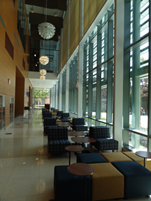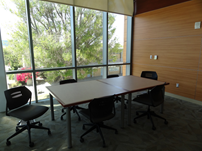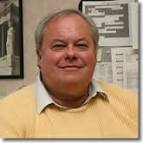by Pearl Ly, College of Marin (formerly Pasadena City College)
The ALA Summit on the Future of Libraries was held May 2-3, 2014 at the Library of Congress in the nation’s capital. I had the opportunity to participate in this summit with about 80 other library and related professions to imagine the future and prepare for the launch of the ALA Center on the Future of Libraries. This is a brief write-up sharing about my experience and some of my take-aways.
To challenge participants and start discussions, summit speakers included:
• James Billington - Librarian of Congress since 1987
• Stephen Dubner - journalist and author/podcast of Freakonomics
• Thomas Frey - executive director of the Da Vinci Institute
• Joel Garreau - Professor of Law, Culture, and Values at Arizona State University
• Dr. Renu Khator - Chancellor/President of University of Houston
• Joan Frye Williams - librarian, consultant, trainer of library services
At our arrival, we were asked to write two short words (or a short phrase) that reflected our perception of the future of libraries and attach them on ribbons to our name badges. We had the opportunity to change or add words throughout the conference. After asking the Pasadena City College staff what they thought, I choose the words, “community” and “knowledge.” After each speaker, we completed personal reflections and participated in table discussions. It was intimidating to share my thoughts with past, current, and future ALA Presidents and other well-known library figures but everyone was very gracious and my contributions were appreciated.
Two of the speakers really resonated with me. Stephen Dubner spoke at length about changing our own thinking as a way to change libraries. Dubner shared his observation that the hardest three words to say were “I don’t know” and that we often fake it or bluff. Instead, he argued that we should admit what we don’t know and work hard to get data by asking different questions. Limiting assumption-based decision making really resonated with me and I added “I don’t know” to my name badge. Dubner also spoke about the need, in addition to evidence, to tell stories in order to persuade people that don’t want to be persuaded. Stories are compelling and we remember them. As a library advocate in an environment of scarce resources and accountability, I want to work on my storytelling skills and ability to be a more effective leader.
The other speaker that sparked ideas for me was Dr. Renu Khator, Chancellor/President of University of Houston. Dr. Khator spoke about the global and technology trends in higher education as well as the need for universities and libraries to collaborate on issues together. She argued that “we can’t serve today’s learners with yesterday’s tools and expect to be in business tomorrow.” When applying this to libraries, Dr. Khator challenged us to focus on experiences and communities of learners instead of books. Furthermore, she argued that libraries should be flexible, open, and prepared for continuous innovation as a culture. After the Dr. Khator’s dynamic and passionate talk, I added “experiences” to my name badge. Changing organizational culture is difficult and I need to share with my library colleagues the sense of urgency that is needed for libraries to be integral to today’s learners and connected to our college mission and goals.
It was an honor to be an active participant in this national discussion on the future of libraries. A sense of urgency for change was clearly present during the summit and I look forward to the development of the Center for the Future of Libraries. As we think about the future, ALA President Barbara Stripling spoke about the need for librarians to have “grit,” a combination of perseverance and passion. I added “grit” as my last word about the future of libraries as we will need to be resilient and optimistic in our dynamic and challenging environment.
Here are additional resources about the summit you may be interested:
• ALA Press Release
• Summit Participant List and Agenda
• American Libraries - Day 1, Day 2
• Interview with Participant, Dr. Cindy Miles, Chancellor at Grossmont-Cuyamaca Community College
• Twitter - #libfuturesummit
There were a lot of ideas and rich discussion packed into a short amount of time. I will be reflecting further and speaking on the ALA President’s panel on the Future of Libraries at the 2014 ALA Annual Conference in Las Vegas. Hope to see you there or I am happy to chat with you individually about the summit.





